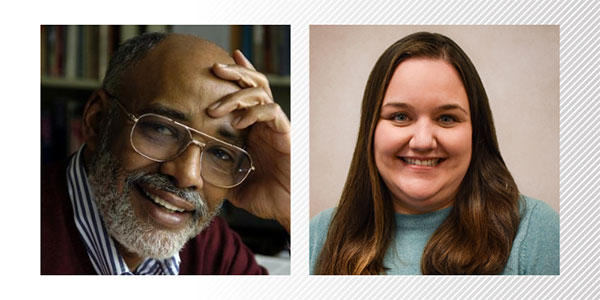Excerpts from ‘Bridging Divides’ series: Engaging with People, Perspectives, and Policies When You Don’t Agree: Lessons from Journalism

As part of the College of Media’s three-part webinar series this fall, “Bridging Divides: Conversations on Media and Disagreement,” faculty from the Departments of Advertising, Journalism, and Media & Cinema Studies led Q&As to explore how productive discussions occur across lines of disagreement and difference.
Below, read excerpts from “Engaging with People, Perspectives, and Policies When You Don’t Agree: Lessons from Journalism.” Note: Answers have been condensed for length and clarity.
Panelists:
- Leon Dash, Professor and Swanlund Chair, Department of Journalism; 1995 Pulitzer Prize Winner for Explanatory Reporting
- Colleen King, Clinical Assistant Professor, Department of Journalism; Director of the Richard and Leslie Frank Center for Leadership and Innovation in Media; former Executive Producer for MSNBC’s The 11th Hour with Brian Williams
King: How do you have all your life experiences and not put them in a story?
Dash: You get used to keeping your personal opinion, your personal reactions out of stories. It’s discipline that becomes a part of you and working as a reporter. And, you know, an editor is not going to let your opinion go past him or her. They're going to stop you and say, ‘Oh, no, no, you're giving me your opinion here.’
King: News judgment really cannot be totally objective. So how do journalists approach the selection of stories at times of great polarization?
Dash: Probably from their personal interests. News objectivity is a goal, but as I said, it is very difficult to achieve pure objectivity. But you know when you're being unfair. And so that was, for me, my measure. Fairness or unfairness. [As for] what stories to select to cover, they almost present themselves.
King: How can the press go about rebuilding trust with audience members, especially younger audiences who maybe aren't as familiar with traditional news media?
Dash: That's a good question because [I’m] dealing with a freshman class this semester and I've been surprised when they tell me they get most of the information from TikTok.
And I really don't have an answer to that question. I talk to them and I give them a current events quiz. Some of them do quite well on it. The ones that do well on the current events are reading traditional news outlets. Here the students have access as part of their student fees to The New York Times, USA Today, and Wall Street Journal. And some of them do take advantage of that and read those papers regularly, not daily, and so they're well up to the mark on current events.
Others follow traditional social media that they have always followed and they're not really up on current events. So, I really don't have an answer for that. I would like to see an answer for that. Maybe this is a part of an evolution that we have to go through as a society.
King: What are some of your big takeaways or advice for students in public affairs reporting?
Dash: It's important to remain calm and not be defensive or offensive. I'm always telling them you have to have a bit of aggression in terms of advocating for the public, the politicians, and with the people who are elected officials. You must always be polite, and professional, but ask the question that needs to be asked.
If it’s a matter of embezzling money, you ask about it. If you know the amount of money that was embezzled, you cite that in your question and it's public. So always be prepared to do that, no matter what the reaction of the official or the politician is to your question.
Read excerpts from the other “Bridging Divides” Q&As:
- Reaching Across the Aisle: Advertising and Messaging in an Age of Polarization
- What Does it Mean to Be an Informed Critic?
